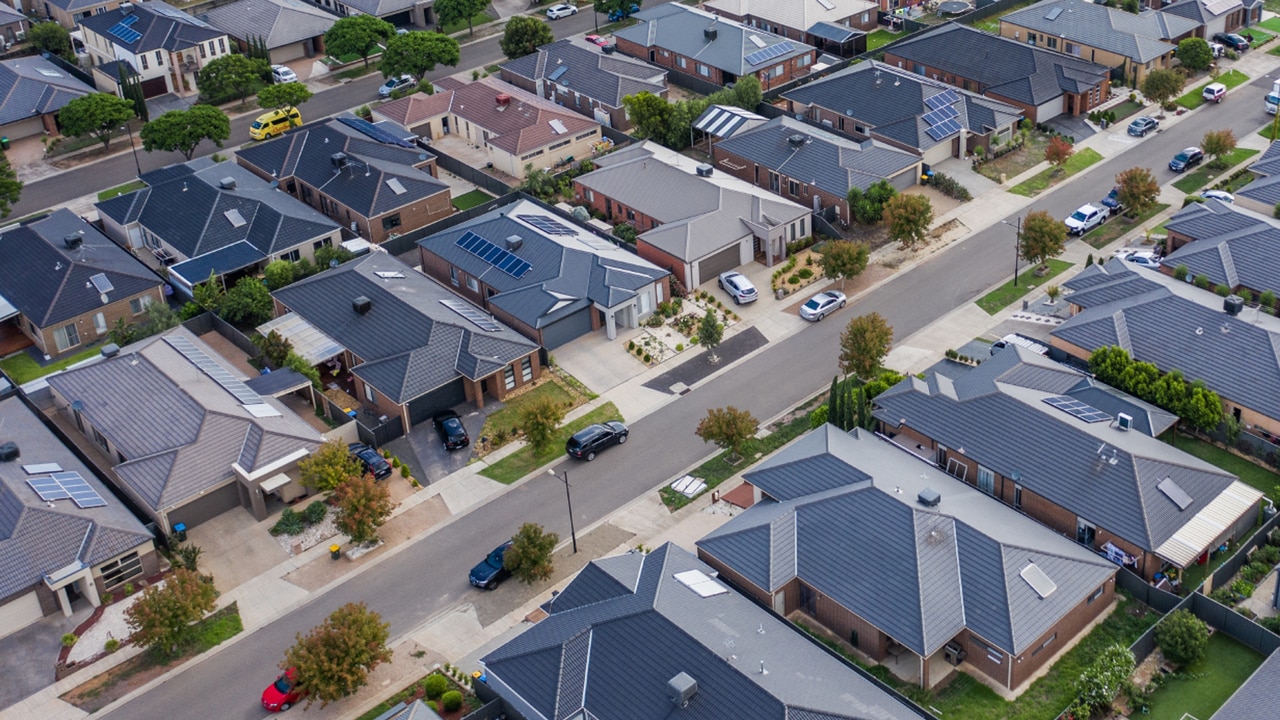‘Longer’: Trend reveals how Gen Zers can afford to buy in 2024
Many Aussies may find it impossible to buy a home in 2024, but a new trend is allowing Gen Zers to finally get into the market.

If you want to buy a home in 2024, the best option is to stay and live at home.
According to the Australian Bureau of Statics, the mean house price nationally is now sitting at more than $970,000.
It is tough for young people to get into the market. According to financial comparison website Finder’s Consumer Sentiment Tracker, the average salary for an Aussie working full-time is $97,701.
On average, full-time Gen Z employees earn $84,340, but a minimum deposit for a house within the median national price range is still more than most young people’s yearly wages.
In response, fewer young people are moving out of their childhood homes or are returning to living with their parents when circumstances allow.
Finder has also found that, of those surveyed, 1 in 10 Australians have paused moving out of home due to the soaring living costs and found that those who stay at home for an extra five years stand to save over $100,000 on out-of-home expenses.
Amie Maclaine was only able to start saving money again because she moved home in her late twenties.


Ms Maclaine was 18 when she left her home in Canberra to attend university in Sydney. Initially, she lived in university housing and, three years later, she moved into her first share house in the same city.
When the pandemic struck, Ms Maclaine returned to Canberra to spend more time with her family. She ended up getting a job and staying.
When her partner moved back to Sydney for work, she decided to stay home and move in with her family full-time.
“It was a great opportunity to save money,” she told news.com.au.
The 27-year-old said she moved back in with her mum because it saved her from experiencing the “financial stress” of living alone.
She decided to forgo freedom for the financial relief of living with her mum again because she didn’t have much money in savings.
“I did not save a lot of money when I was out of home. Partly because I was young and had adult money for the first time and wanted to spend it all on the things you do when you first have disposable income,” she said.
“The other part was that I was living in Sydney and it was very expensive. I had virtually no savings when I was living out of home and I was living pay cheque to pay cheque.”


Ms Maclaine is thankful that she was able to move home. It meant that she could stay and save money.
Right now, she’s on a lengthy overseas holiday and she can only afford it because she’s ditched paying rent.
She’s also observed that living at home with your parents isn’t really abnormal anymore and that most of her mates fall into one of two camps.
There are those who moved out of home young and started their own lives in other cities only to return home to Canberra during the pandemic and, because of the high cost of living, decided to move back and live with their parents for a while.
This was usually done with the plan to save for a house, an apartment, or even just a good holiday.
Then there’s the other kind, the financially savvy mates that just didn’t move out until they’d saved enough for a deposit.
“A lot of people who grew up in Canberra, who stayed there for university and never left, are the ones that stayed at home until they could afford to buy a house,” Ms Maclaine said.
“Most of them have stayed at home much later, like into their late twenties, until they could afford to a buy home.”

Ms Maclaine believes that is just the new normal, and young people will stay at home “longer” or move back in when they need to because it is one of the only ways to get ahead.
Finder’s financial expert, Graham Cooke, explained that living at home puts young people on the “fast track” to purchasing their first home.
“A few extra years at home can add thousands to your savings. The power of compound interest means those fortunate to live a couple more years rent-free will be the first to enter the property market,” he told news.com.au.
“The key to making this work is having a clear savings plan; sometimes people move home to save money and 12 months later, they’ve hardly saved anything because they’ve kept up poor spending habits”
Mr Cooke said you need to cut unnecessary expenses to make living at home worth it.
“Make sure you really cut down on unnecessary expenses, such as pricey gym memberships and eating out. This can make a huge impact in the long-term,” he said.






